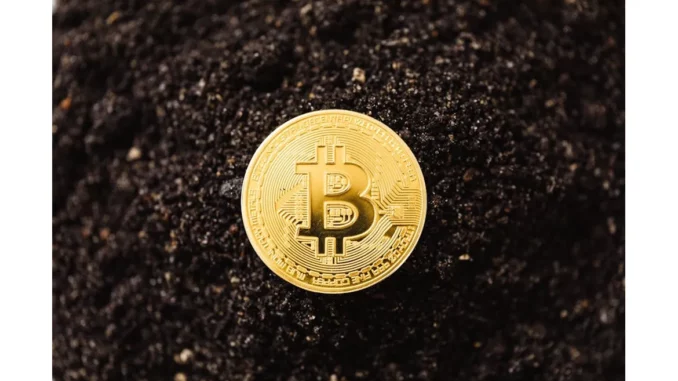
As the financial landscape continues to evolve, Bitcoin has emerged as a pioneering force, capturing the imaginations and wallets of investors globally. In a market inundated with over 20,000 cryptocurrencies, Bitcoin stands apart, commanding a market capitalization approaching $1.3 trillion. This digital asset has not only captivated tech enthusiasts but has also gained the interest of mainstream investors. A Pew Research Center poll indicates that 17% of U.S. adults have engaged with cryptocurrencies in some form. Amid this financial revolution, Bitcoin Individual Retirement Accounts (IRAs) have surfaced as an innovative and tax-advantaged investment vehicle, offering a unique blend of potential gains and inherent complexities.
Bitcoin’s meteoric rise is a phenomenon that cannot be ignored. From a modest value of $9,600 per token in June 2020, Bitcoin’s price surged to approximately $60,000, marking an extraordinary 575% increase over four years. In stark contrast, the S&P 500 Index saw a relatively modest 72% rise during the same period. This extraordinary growth trajectory has naturally drawn the attention of investors seeking substantial returns, leading to the creation and growing popularity of Bitcoin IRAs. These accounts diverge markedly from traditional and Roth IRAs, which typically limit investments to conventional assets like stocks, bonds, mutual funds, or exchange-traded funds (ETFs). A Bitcoin IRA, often structured as a self-directed IRA requiring a custodian, allows for investment in alternative assets like cryptocurrency. According to Ian Weiner, a certified financial planner (CFP) and lead planner at Bespoke Wealth Solutions, “Investors are constantly searching for a way to defer taxes on assets they believe have significant upside potential. With Bitcoin’s meteoric yet volatile growth in the last decade or so, it’s no surprise that many investors are looking for ‘loopholes’.”
Embarking on the journey of opening a Bitcoin IRA involves several critical steps. The first is selecting a reputable provider. Platforms like Swan and BitcoinIRA have streamlined this process, offering integrated services that include a crypto exchange, a custodian, and secure storage for Bitcoin. To initiate an account, prospective investors need to provide personal details such as their legal name, address, Social Security number, and bank account information. Once an account is established, the next step involves funding it, either through a bank transfer or by rolling over an existing retirement account. After funding, investors can then place an order to buy Bitcoin. Secure storage is paramount in this process, and most platforms recommend a custodian that meets IRA standards to safeguard these digital assets.
Investing in Bitcoin IRAs comes with its own set of financial intricacies. Unlike traditional or Roth IRAs, Bitcoin IRAs often involve higher fees. “Fees vary [by provider], but there tends to be many,” cautioned Weiner. These fees can include transaction fees, platform fees, and custodian fees. For instance, BitcoinIRA charges a trading fee of 2% and a monthly fee of 0.08%, while Swan imposes a monthly fee of $20 for balances under $100,000. Volatility is another significant consideration. Bitcoin’s price is notoriously fickle, capable of dramatic swings. In November 2021, Bitcoin reached a peak of $65,000, only to plummet to $15,500 by November 2022. Such volatility can jeopardize retirement savings, particularly for those nearing retirement age who may not have the luxury of time to recover from significant losses.
The digital nature of Bitcoin introduces unique security challenges. The Commodity Futures Trading Commission has warned about the risks of digital wallets being hacked. If assets are stolen, recovery is often impossible, making security a paramount concern for investors. John Haar, managing director of Swan, advises, “You want to do your due diligence. How long have they [the prospective platforms] been around? Have they ever had a security incident? How many assets do they custody in terms of number of tokens, but also in terms of dollar value? Do they have any sort of insurance policy against fraud and misuse?” These questions are critical for investors to consider when selecting a Bitcoin IRA provider.
Bitcoin IRAs represent a fascinating intersection of traditional investment strategies and cutting-edge digital finance. The prospect of high returns is undeniably alluring, yet the associated risks are considerable. The fees involved can erode potential gains, and the volatility of Bitcoin’s price adds another layer of risk, making it a less suitable option for conservative investors or those nearing retirement. Security concerns also loom large. The digital nature of Bitcoin makes it vulnerable to hacking, and the irreversible nature of blockchain transactions means that stolen assets are often lost forever. As such, rigorous due diligence is essential when choosing a Bitcoin IRA provider to mitigate these risks.
Looking forward, the landscape of Bitcoin IRAs is poised for evolution. As digital currencies gain broader acceptance and regulatory frameworks become more defined, increased adoption of Bitcoin IRAs is likely. This growing acceptance could lead to more competition among providers, potentially driving down fees and making these investment vehicles more accessible. Technological advancements may also bolster security measures, making digital assets safer to hold. Additionally, as the market matures, Bitcoin’s volatility could decrease, rendering it a more stable investment option. However, this remains speculative, and investors must remain vigilant.
In essence, while Bitcoin IRAs offer an exciting investment opportunity, they come with their own set of challenges. Investors must carefully weigh the potential for high returns against the risks of volatility, fees, and security issues. Diversification remains a critical strategy, and experts recommend limiting cryptocurrency investments to a small portion of one’s overall portfolio—typically between 2% and 5%. As with any investment, thorough research and a balanced approach are essential to navigate the complexities of Bitcoin IRAs successfully.

Be the first to comment